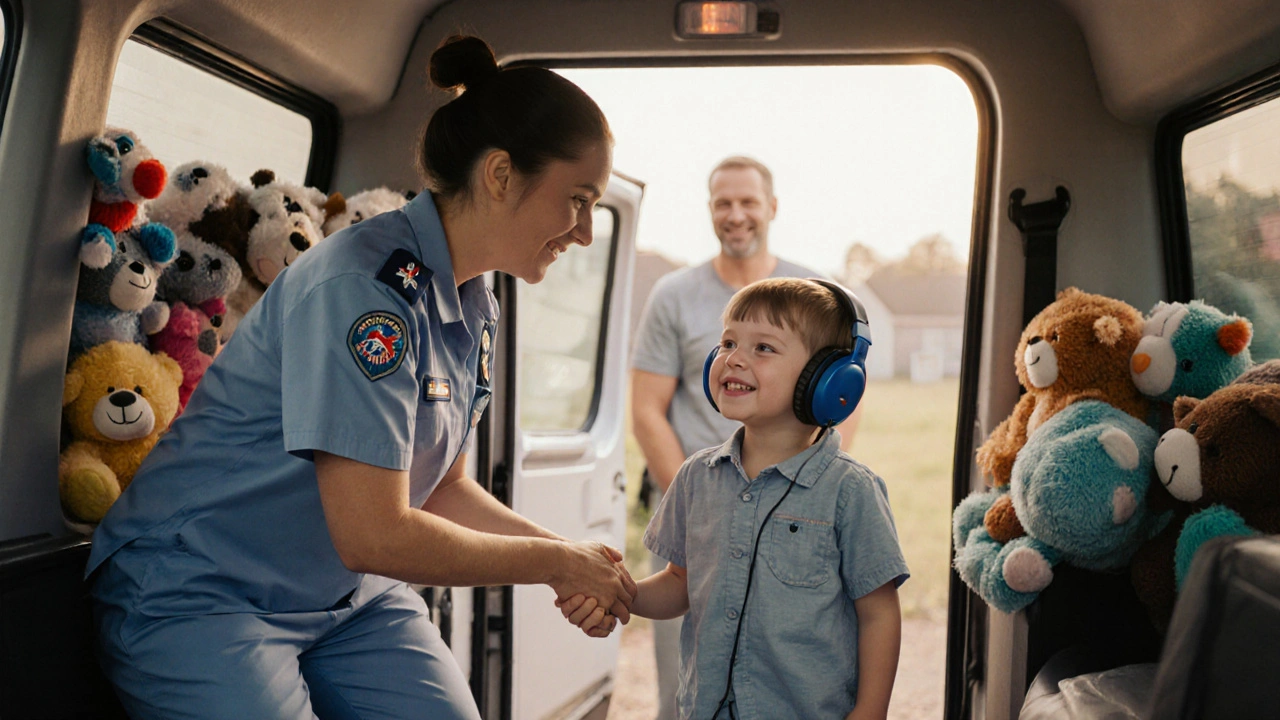Pediatric Appointments: What You Need to Know About Medical Escorts and Support
When managing pediatric appointments, scheduled visits to doctors or specialists for children’s health needs. Also known as child health checkups, these appointments are often frequent, complex, and emotionally draining for families. For kids with chronic illnesses, developmental delays, or multiple specialists, these visits aren’t just routine—they’re a full-time job. Parents juggle transportation, medication schedules, insurance paperwork, and communication between clinics, all while trying to keep their child calm and cooperative. It’s exhausting. And it doesn’t have to be.
Medical escort services, professional support staff who accompany patients to healthcare visits. Also known as patient transport aides, these professionals handle the logistics so families don’t have to. They show up on time, help kids get out of the car, carry medical equipment, remind parents about prescribed meds, and even talk to nurses to make sure the child’s history is clear. This isn’t just about getting there—it’s about making sure every appointment counts. For parents of children with autism, cerebral palsy, or complex medical needs, a medical escort can mean the difference between a smooth visit and a meltdown that cancels the whole day.
These services connect directly to appointment coordination, the process of organizing and managing multiple healthcare visits across different providers. Also known as care scheduling, it’s the backbone of managing chronic conditions. One family might have a pediatrician, a neurologist, a physical therapist, and a nutritionist—all on different days, in different locations. Without a system, missed appointments pile up. Missed visits lead to hospitalizations. Medical escorts don’t just drive kids to clinics—they track calendars, confirm times, send reminders, and flag conflicts before they happen. That’s why hospitals and home care agencies increasingly rely on them to cut readmission rates and improve outcomes.
And it’s not just about the child. Medical transportation, specialized travel services designed for patients with mobility, cognitive, or medical needs. Also known as non-emergency medical transport, it’s often the first hurdle families face. Not every van can handle a wheelchair. Not every driver knows how to calm a child having a seizure. Not every route is safe at 7 a.m. with school buses on the road. Medical escorts use vehicles equipped for medical needs, drivers trained in pediatric care, and routes planned around traffic, weather, and clinic hours. This isn’t a taxi service—it’s a lifeline.
Behind every successful pediatric appointment is patient support, the ongoing assistance that helps families navigate the healthcare system emotionally and practically. Also known as care advocacy, it’s what turns chaos into control. That support includes explaining test results in plain language, helping parents ask the right questions, and even just sitting quietly with a scared kid while the nurse prepares the shot. It’s the human piece no algorithm can replace. And it’s why families who use these services report less stress, fewer missed visits, and more confidence in their child’s care.
What you’ll find in the posts below are real stories, practical tools, and proven systems that families and providers use to make pediatric appointments work—not just survive. From how escorts coordinate with schools and insurance to what gear they carry in their vans, these aren’t theoretical guides. They’re the tools people use every day to keep kids healthy, safe, and on track.

- Oct, 14 2025
- 0 Comments
Pediatric Appointments: How Medical Escort Services Help Families Navigate Care
Medical escort services help families get their children to pediatric appointments safely and stress-free-especially when transportation, special needs, or language barriers make it difficult. Learn how these services work and who benefits most.
read more